Robert Shiller: Is he right that stocks are overpriced?
By Colin Twiggs
March 17, 2017 9:40 p.m. EDT (12:40 p.m. AEDT)
Disclaimer
Please read the Disclaimer. I am not a licensed investment adviser.
I frequently come across stocks such as Netflix [NFLX], trading on a forward PE of 137 (Morningstar), or even Procter & Gamble [PG] that leave me muttering about unrealistic valuations.
Nobel laureate Robert Shiller this week commented that he was no longer buying stocks as he believed they were overvalued. His justification is the CAPE index which compares current stock prices to the 10-year average of inflation-adjusted earnings.
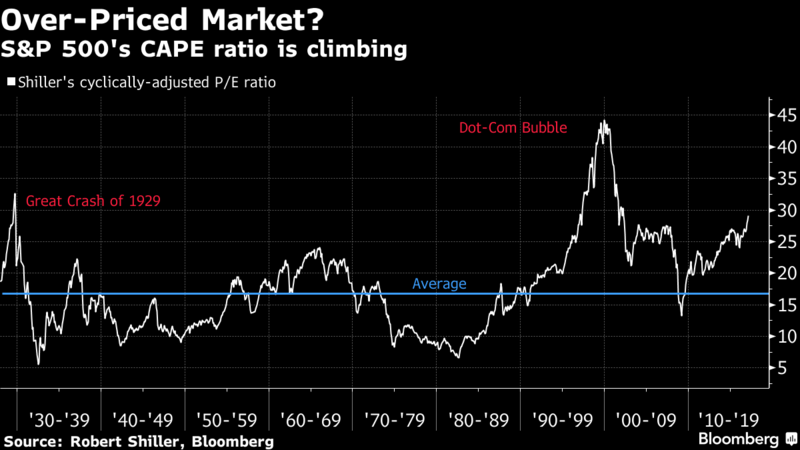
The index is below its Dotcom high but is approaching the same level that it peaked at in 1929. Is the CAPE index flawed or does this portend disaster?
Bear in mind that Shiller is not selling all his existing stocks — he has merely stopped buying — and is the first to point out that the CAPE index is a poor tool for timing market tops and bottoms.
Before we make any rash decisions let us compare Shiller's index to a few other handy measures of market valuation.
Warren Buffett's favorite
Warren Buffett's favorite measure of market value is to compare total stock market capitalization to GDP. The higher the ratio, the more the stock market is overvalued.
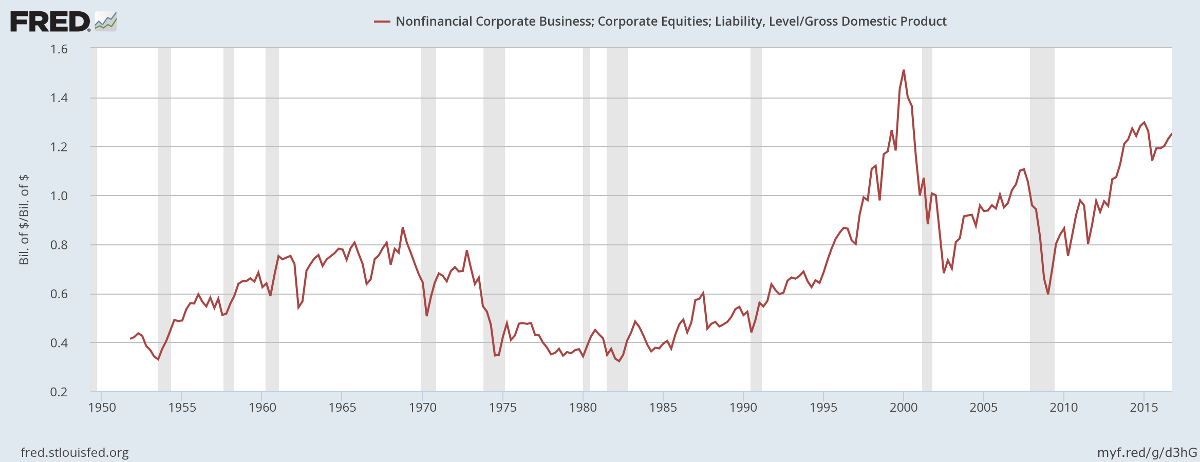
This looks even worse than the CAPE index, with market cap to GDP well above its 2007 high and well on its way to Dotcom levels.
Adapting the ratio to include offshore earnings of multinational companies makes very little difference to the results. Here I compare market cap to GNP as well as GDP. GNP, or gross national product, includes offshore earnings of domestioc companies rather than just domestic earnings as with GDP. The end result is much the same.
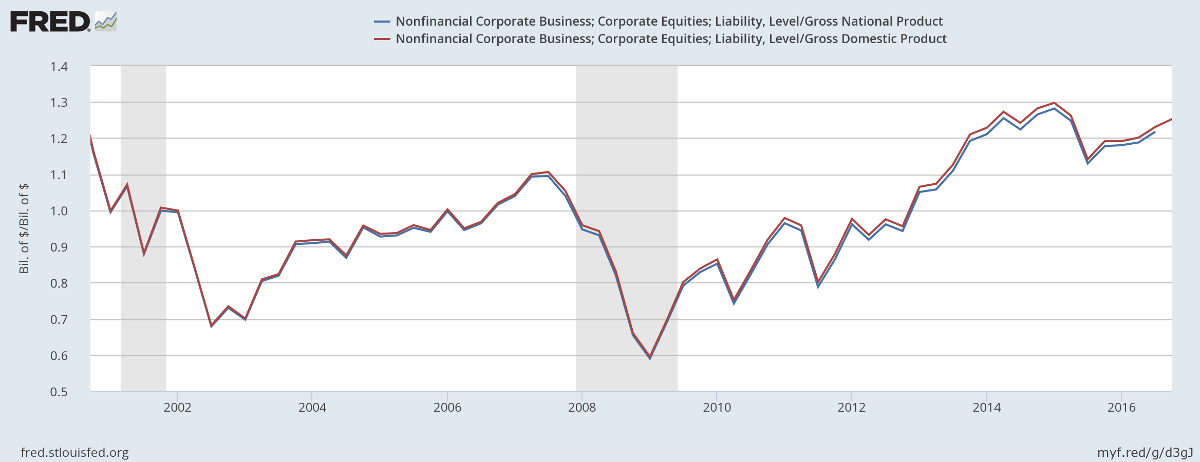
Market Cap to Corporate Profits
When we compare market capitalization to current profits after tax, however, valuations are still high but nowhere near the irrational exuberance of the Dotcom era.
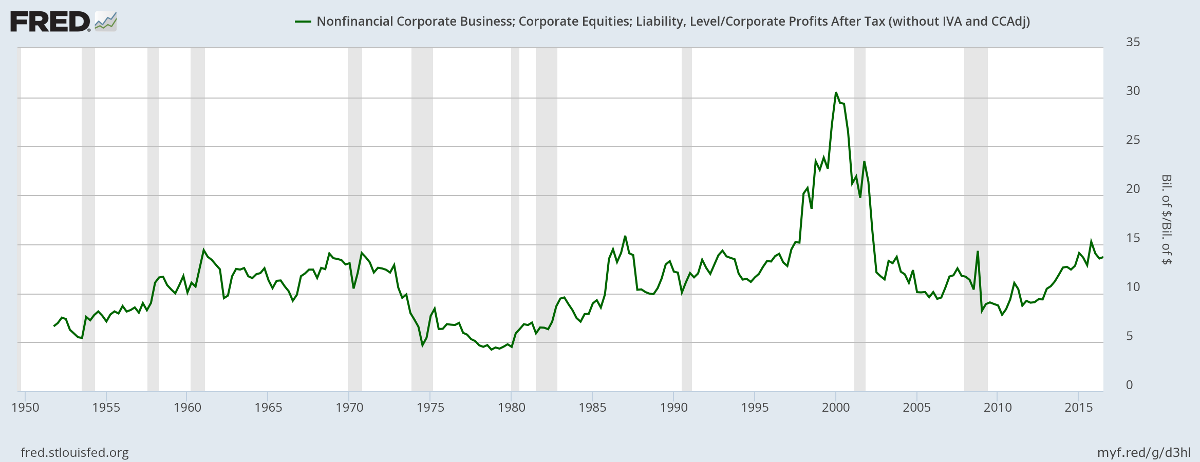
The current peak resembles earlier peaks in the 1980s and 1960s.
What this tells us is that corporate profits are rising faster than GDP. And that a 10-year average may be a poor reflection of future sustainable earnings.
Sustainable Earnings
Are current earnings sustainable? There is no clear answer to this. But there are some key criteria if earnings are to remain at current levels of GDP.
First, wage rate growth remains low. The graph below illustrates how profits fall when employee compensation rises (per unit of value added).
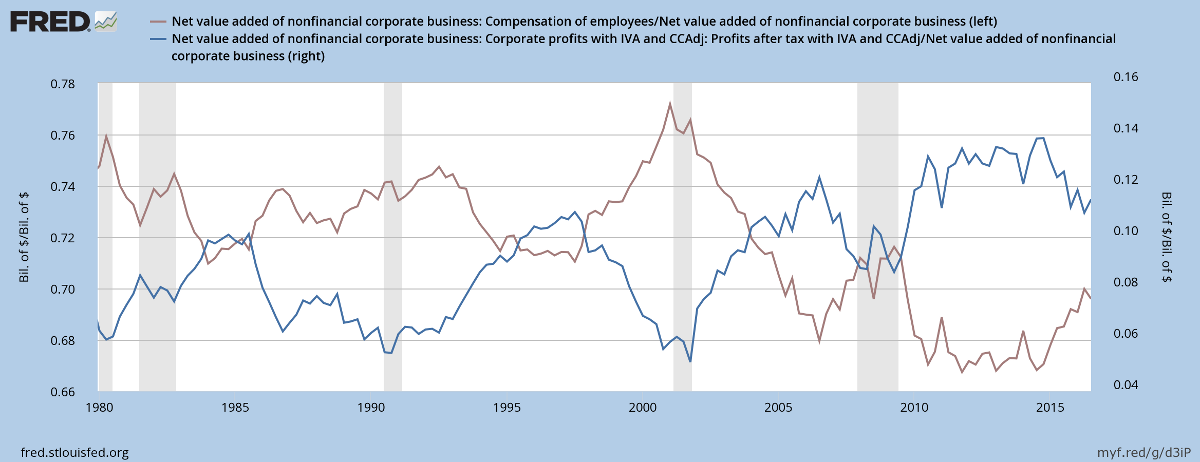
Second, that interest rates stay low. The Fed is doing its best to normalize interest rates but monetary tightening would spoil the party. That is, deliberate tightening by the Fed to subdue rising inflationary pressures.
A third element is corporate taxes but there seems little risk of rising taxes in the current climate.
The key variable for both #1 and #2 is wage rates. At present these are subdued, so no cause for alarm.
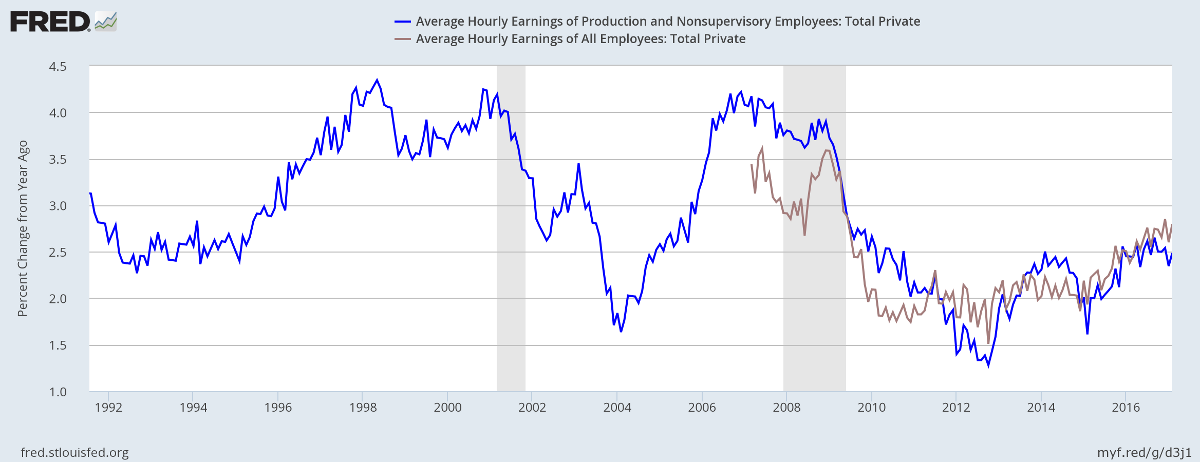
....yet.
It ain't what you don't know that gets you into trouble. It's what you know for sure that just ain't so.
~ Samuel Clemens (Mark Twain)

Author: Colin Twiggs is a former investment banker with almost 40 years of experience in financial markets. He co-founded Incredible Charts and writes the popular Trading Diary and Patient Investor newsletters.
Using a top-down approach, Colin identifies key macro trends in the global economy before evaluating selected opportunities using a combination of fundamental and technical analysis.
Focusing on interest rates and financial market liquidity as primary drivers of the economic cycle, he warned of the 2008/2009 and 2020 bear markets well ahead of actual events.
He founded PVT Capital (AFSL No. 546090) in May 2023, which offers investment strategy and advice to wholesale clients.
